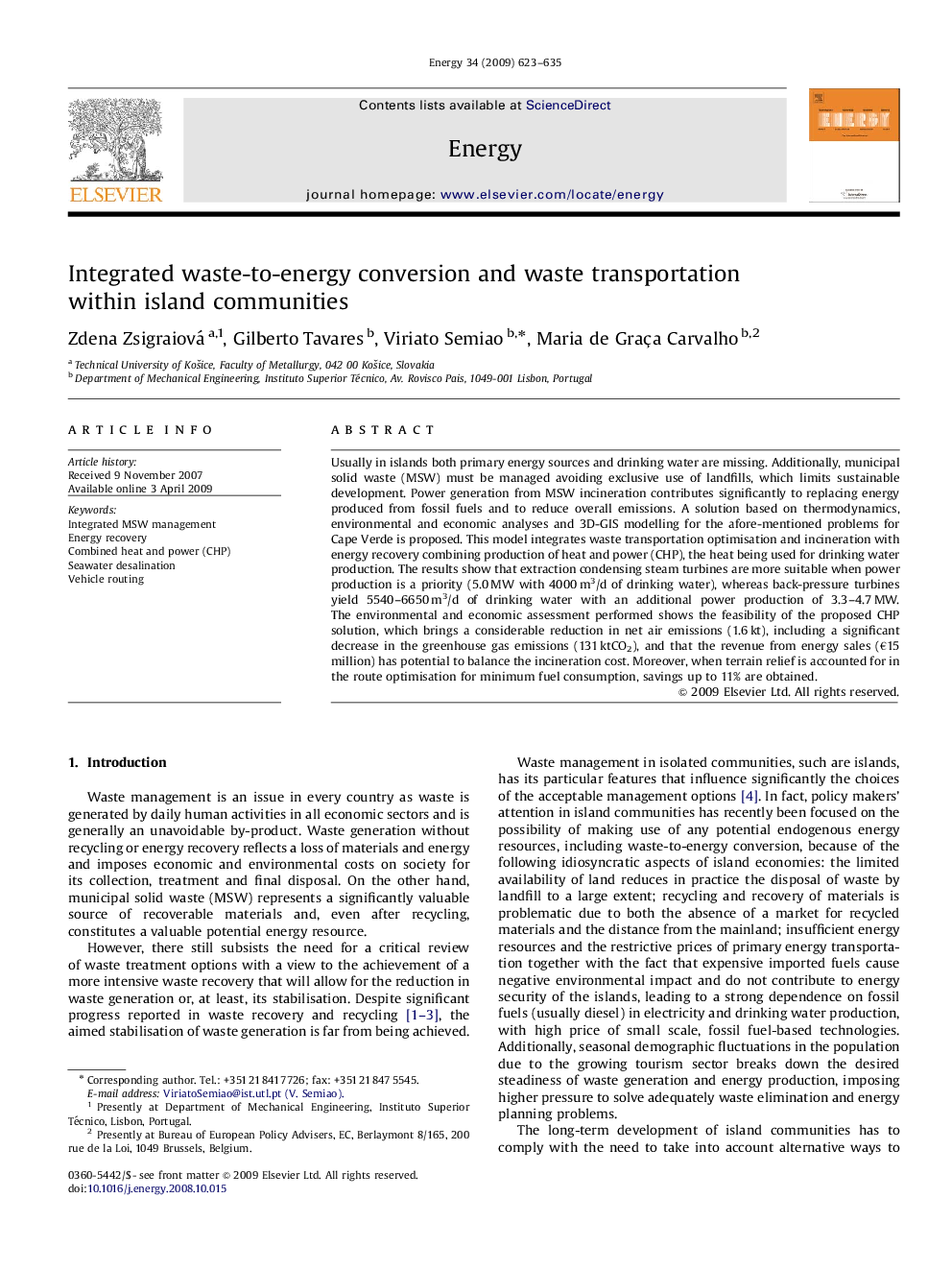| Article ID | Journal | Published Year | Pages | File Type |
|---|---|---|---|---|
| 1735882 | Energy | 2009 | 13 Pages |
Usually in islands both primary energy sources and drinking water are missing. Additionally, municipal solid waste (MSW) must be managed avoiding exclusive use of landfills, which limits sustainable development. Power generation from MSW incineration contributes significantly to replacing energy produced from fossil fuels and to reduce overall emissions. A solution based on thermodynamics, environmental and economic analyses and 3D-GIS modelling for the afore-mentioned problems for Cape Verde is proposed. This model integrates waste transportation optimisation and incineration with energy recovery combining production of heat and power (CHP), the heat being used for drinking water production. The results show that extraction condensing steam turbines are more suitable when power production is a priority (5.0 MW with 4000 m3/d of drinking water), whereas back-pressure turbines yield 5540–6650 m3/d of drinking water with an additional power production of 3.3–4.7 MW. The environmental and economic assessment performed shows the feasibility of the proposed CHP solution, which brings a considerable reduction in net air emissions (1.6 kt), including a significant decrease in the greenhouse gas emissions (131 ktCO2), and that the revenue from energy sales (€15 million) has potential to balance the incineration cost. Moreover, when terrain relief is accounted for in the route optimisation for minimum fuel consumption, savings up to 11% are obtained.
